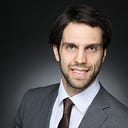Planting the seedling: DAOs in the mild west
On the 20th of August 2019 during Berlin Blockchain Week, something was reborn: a notion so powerful that everyone had heard of it — but few understood it and even fewer had been touched by it. It was considered, at times, the holy grail of human civilization and the solution to all that is wrong in our world — at other times a very expensive mistake waiting to happen again.
I’m not referring to DAOs ¹ — I’m referring to the notion and belief that self-executing smart contract-driven organizations can be our most powerful tool to solve the biggest problems on earth by emergent massive-scale coordination. And it all starts with putting the idea of a festival on its head. Read on to see how we brought this to the budding Blockchain community in Hamburg!
When the 1st DAOfest launched during Berlin Blockchain Week I immediately felt like it was 2017. All the dreams of cryptofolklore became possible. These people, these speakers, they were all proving it, on small scales. And increasingly larger ones. To capture this spirit, this fire, bring it to Hamburg to the budding community there— that was what it inspired me.
The turnout to the launch of decentralized DAOfests all over the world was a sight to behold. Hamburg was the first DAOfest to come out of the original DAOfest specifically because they had the earliest available date and a community already prepped for a new topic. As our location we chose the Mare Frisium — a windjammer anchored in Hamburg — through a generous partial sponsorship.
With a total of 20 attendees (57% attendance rate) with only 3 weeks lead time we managed to bring together a tight community with very diverse backgrounds in print media, law, philosophy & entrepreneurship, blockchain tech, computer science and art and yes, even politics!
The concept our event was straightforward: the maestro Felipe Duarte of DAOStack, the project behind the tech stack (duh) that powers GenesisDAO, dxDAO (the DAO gvoerning the DutchXChange protocol) and others, introduced the audience to the concept of a DAO, some (personal) DAO history and ultimately led us to the inevitable question: what would WE change if we would try and launch a DAO?
So the evening turned into long night of ideating, formulating, visualising and mental games of economic thinking. Three teams emerged — with each a unique take on the concept of a DAO (and even identity):
freespaceDAO — hacking culture started in Hamburg and spawned the largest hackerspace for decades — citywide gentrification has cast out people and spaces for free thinking. The goal was to learn how a DAO could be useful in realigning incentives to allow these elements in society to recreate the spaces they lost.
forestDAO — if a forest could enlist agents to further its own means of survival— how would that look like? This raised the question of on-chain identity and whether a forest is sufficiently represented by encoding it in the incentive and governance structure of a DAO.
poliDAO — a multi-party system is great but even then raising attention (and funds) for grassroots movements that are small and localized remains inefficient not very scalable. Also, first-movers inside small grassroots movements often happen to hold more power than they might have to.
It is this case that has been taken further and is now being actively studied for green grassroots movement in eastern Hamburg.
All of this was facilitated by the great Felipe Duarte and his creation — the DAOcanvas (http://daocanvas.webflow.io/). Through his mentoring, the teams that emerged had help guiding their thoughts to find consensus on the aspects, values, rules and incentives of the DAO they modeled.
Throughout the event we were able to collect 14 contacts who then later joined the Telegram group as an injection of fresh cells into the DAOstack bloodstream. Read on for a summary and outlook.
Learnings & Outlook
The key learnings were as follows:
- the human interface is the weak spot: the frontend of a DAO is not what drives long-term participation
- More than half of the attendees have not had prior exposure to DAOs
- the DAOcanvas is not self-explanatory and as of September, is more of a tool that requires supervision
- regulatory questions kept comping up — this might be a particularity of our community but this is something that kept coming up
One of the differentiating factors of DAOstack is the concept of Holographic Consensus — that local (in terms of voter subset) decisions are in line with the opinion/values of the DAO at large. We have wondered: how would we measure when holographic consensus is achieved? This elusive question remained unanswered as the local teams design progress hasn’t progressed enough.
But what we can say is that a seed has been planted: DAOs where simply not a topic in the local community and now we have one group exploring DAOs for political purposes and another Blockchain group is exploring this for a global non-profit profit network.
It is clear for me that further events will follow. The key challenge will be striking the balance/finding the rhythm between talks and hands-on workshops. The next fest will likely happen in January with attention raising starting with our next meetup on 14th of November. Onward to new shores!
